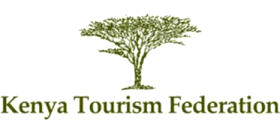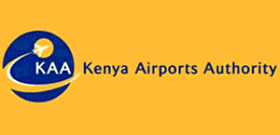Kenya's Park Payment Shake-Up: Industry Outcry Over Skyrocketing Fees!

The Kenya Tourism Federation (KTF), a pivotal representative of Kenya’s private tourism sector, has issued a grave warning concerning the recent overhaul of the Kenya Wildlife Service (KWS) park fee payment platform. The Federation's leadership has expressed profound apprehension that the sudden implementation, which occurred without any prior consultation with critical industry stakeholders, has precipitated a cascade of operational and financial difficulties for tour operators, booking agencies, and park visitors alike.
According to KTF Chairman Fred Odek, this new payment system has significantly disrupted established business practices, thereby jeopardizing Kenya's esteemed reputation as a premier global tourism destination. Odek elucidated, "The rollout of the new KWS park payment system has created unnecessary financial strain and uncertainty for operators who had already priced and contracted tours under the previous arrangements. The additional fees and limited payment options translate to unbudgeted losses and threaten existing contracts with our international partners." This statement underscores the extensive repercussions for the sector's stability and competitive edge.
A primary point of contention under the revised system is the severe restriction on accepted payment methods. Only M-PESA and Visa card payments are now permissible, with the previously reliable and efficient bank transfer option entirely withdrawn. This drastic change has introduced considerable complexity, particularly for managing large group bookings and substantial financial transactions that traditionally depended on bank transfers for their efficacy and transparency. Consequently, numerous operators are now struggling to adapt, especially those catering to high-volume or international clientele who may not readily access the newly restricted payment channels.
Adding to the industry's burgeoning frustration is the imposition of an 8.5 percent processing fee on all card payments. This rate is conspicuously high when benchmarked against other government-operated platforms. This substantial surcharge, compounded by the limited payment avenues, has led to a noticeable escalation in transaction costs. This effectively compresses already slender profit margins for operators and bears the potential to dissuade both domestic and international tourists from engaging in Kenyan wildlife experiences.
Further exacerbating the financial burden is the exchange rate applied by KWS, which stands at KSH 135 per USD. This figure significantly exceeds the Central Bank of Kenya’s prevailing rate of approximately KSH 129.50. This considerable discrepancy artificially inflates the cost of park entry for all visitors, further eroding Kenya's price competitiveness in a regional market where travelers are increasingly vigilant about value and pricing transparency.
The KTF's concerns extend beyond mere financial implications. The Federation has vehemently critiqued the utter lack of stakeholder consultation preceding the system's launch. They argue that such unilateral policy decisions risk alienating the very partners who are instrumental in propelling Kenya's tourism engine. The absence of constructive dialogue has left a significant portion of the industry feeling marginalized and ill-prepared for the substantial operational disruption that has ensued since the platform’s introduction.
In response to these pressing issues, the KTF is urgently imploring the Ministry of Tourism and Wildlife and the Kenya Wildlife Service to take immediate corrective action. Their foremost demand is the prompt reinstatement of all former payment options, including bank transfers, to reinstate much-needed flexibility and efficiency to the transaction process. The Federation firmly asserts that a more inclusive and consultative methodology is indispensable for safeguarding the sector’s long-term viability and ensuring Kenya remains a preeminent destination for both leisure and business travelers.
Chairman Odek reiterated the Federation's unwavering commitment to fostering constructive engagement, stating, "KTF remains committed to working closely with KWS and the Ministry of Tourism and Wildlife to ensure that Kenya’s tourism industry remains sustainable, fair, and competitive." He emphasized that this collaborative spirit is not only paramount for resolving the current predicament but also for cultivating a more resilient and adaptable tourism sector capable of effectively navigating future challenges and disruptions.
This controversy surrounding the new payment system emerges at a crucial juncture, as Kenya’s tourism industry is diligently striving to rebound from recent global upheavals and strategically position itself for renewed growth. The sector’s inherent capacity to attract international visitors, secure enduring contracts, and uphold its status as a premier wildlife destination is profoundly contingent upon the ease and transparency of its business ecosystem. Any impediments—be they exorbitant fees, restricted payment choices, or unfavorable exchange rates—risk undermining the considerable progress achieved in recent years and could compel operators and travelers to seek alternative destinations.
For Africa’s broader community of travel professionals, the unfolding situation in Kenya serves as a salient reminder of the critical importance of robust stakeholder engagement, transparent pricing mechanisms, and inherent operational flexibility in sustaining tourism growth. As regional competition intensifies and travelers become increasingly discerning, the agility to adapt to evolving market dynamics and regulatory imperatives will prove decisive in maintaining a competitive advantage.
Looking ahead, the ramifications of the KTF’s advocacy endeavors will be meticulously observed by industry participants across the African continent. The Federation’s persistent push for a more inclusive and responsive regulatory framework mirrors broader continental trends in African tourism, where synergistic collaboration between the public and private sectors is increasingly recognized as the linchpin for unlocking novel opportunities and propelling sustainable development. As Kenya navigates this transitional period, the invaluable lessons gleaned will resonate far beyond its national borders, offering profound insights for other African destinations striving to harmoniously balance innovation with the practical demands of the marketplace. The unequivocal call for urgent, concerted action is clear: only through collective effort can the industry guarantee that Africa’s iconic wildlife experiences remain universally accessible, economically affordable, and perennially attractive to the global populace.
You may also like...
When Sacred Calendars Align: What a Rare Religious Overlap Can Teach Us

As Lent, Ramadan, and the Lunar calendar converge in February 2026, this short piece explores religious tolerance, commu...
Arsenal Under Fire: Arteta Defiantly Rejects 'Bottlers' Label Amid Title Race Nerves!

Mikel Arteta vehemently denies accusations of Arsenal being "bottlers" following a stumble against Wolves, which handed ...
Sensational Transfer Buzz: Casemiro Linked with Messi or Ronaldo Reunion Post-Man Utd Exit!

The latest transfer window sees major shifts as Manchester United's Casemiro draws interest from Inter Miami and Al Nass...
WBD Deal Heats Up: Netflix Co-CEO Fights for Takeover Amid DOJ Approval Claims!

Netflix co-CEO Ted Sarandos is vigorously advocating for the company's $83 billion acquisition of Warner Bros. Discovery...
KPop Demon Hunters' Stars and Songwriters Celebrate Lunar New Year Success!

Brooks Brothers and Gold House celebrated Lunar New Year with a celebrity-filled dinner in Beverly Hills, featuring rema...
Life-Saving Breakthrough: New US-Backed HIV Injection to Reach Thousands in Zimbabwe

The United States is backing a new twice-yearly HIV prevention injection, lenacapavir (LEN), for 271,000 people in Zimba...
OpenAI's Moral Crossroads: Nearly Tipped Off Police About School Shooter Threat Months Ago
ChatGPT-maker OpenAI disclosed it had identified Jesse Van Rootselaar's account for violent activities last year, prior ...
MTN Nigeria's Market Soars: Stock Hits Record High Post $6.2B Deal

MTN Nigeria's shares surged to a record high following MTN Group's $6.2 billion acquisition of IHS Towers. This strategi...


